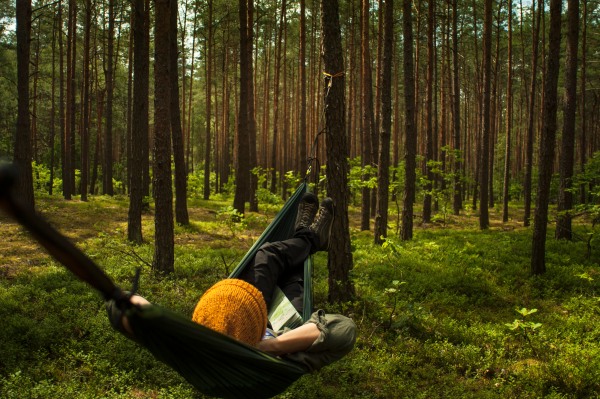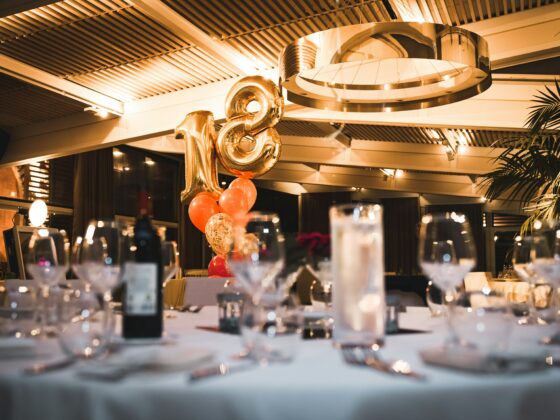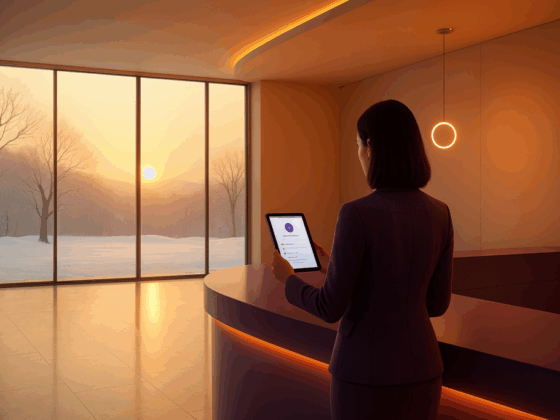
The traditional model of vacationing—cramming everything a destination has to offer into a hectic few days or a week—is steadily falling out of favor. As work schedules become more flexible and allow people to travel more freely, today’s travelers are ditching jam-packed itineraries and post-vacation exhaustion for something slower, more intentional and more sustainable for their overall well-being. Enter the ‘slowcation’: an extended stay that prioritizes local immersion, rejuvenation and emotional clarity.
This significant shift is changing not just how we travel, but how the hospitality industry operates. As guests plan for longer stays and become more mindful of how their time off is spent, hotel management teams are rethinking the way properties run, and how destinations can be uniquely positioned to deliver more meaningful, unhurried experiences for guests who want to linger, connect and truly settle in.
Adapt operations for longer stays
As the average length of a hotel stay increases, embracing a new perspective on hotel operations is crucial to better accommodating guests who are no longer simply passing through. Extended stays require a different approach, melding cues from residential living while maintaining high standards of hospitality. Housekeeping cadence, for example, may shift from daily cleanings to a more flexible, personalized schedule that takes each guest’s privacy and routine into consideration.
Additionally, staff training should evolve to place greater emphasis on relationship building, empowering employees to anticipate the needs of long-term guests and offer more personalized recommendations. Recalling a visitor’s morning coffee order or checking in on a family member they might have mentioned in passing can make a world of difference, and thoughtful training that encourages a greater commitment to a more hands-on, attentive approach is key. Focusing on building genuine relationships and offering personalized recommendations for nearby adventures helps create a sense of home, even when far from it.
From front desk operations to food and beverage service, every touchpoint becomes an opportunity to create a seamless, welcoming experience that encourages guests to feel truly at home. This shift requires a mindset change across the entire team, prioritizing consistency, empathy and the ability to adapt to individual guest rhythms, daily rituals and preferences over the course of their stay.
Elevate hotel F&B
Elevating a property’s food and beverage offerings is a natural extension of a more guest-centric approach to operations. Guests are no longer popping in for a quick meal or cocktail—they are now looking to experience the unique flavors of a destination, connect with the people behind the food, and take their time enjoying it all. This entails rethinking core hotel restaurant menus and programming, incorporating local, seasonal ingredients and authentic culinary stories that reflect the surrounding community’s history, culture and traditions.
Thoughtful beverage pairings, seasonal or locally inspired specials, and curated wine or craft cocktail menus can further enhance the experience. In addition, programming such as chef-led tastings, hands-on cooking classes, or partnerships with nearby farms and artisans invites guests to engage more deeply and meaningfully with their surroundings and all the destination has to offer. This in turn creates a more relaxed dining experience that supports longer conversations, encourages return visits and builds a stronger emotional connection to both the property and the locale. In the era of the slowcation, hotel F&B is a core part of the guest journey that must be intentional, thoughtful, and experience driven.
Reimagine on-site programming
Much like F&B offerings, a property’s on-site programming must evolve to meet the updated needs of intentional travelers. Seeking more than cookie-cutter amenities, the modern guest is prioritizing experiences that help them connect with the local culture, fellow travelers and themselves. Longer stays create opportunities for deeper engagement, and hotels are uniquely positioned to establish meaningful touchpoints through curated, locally inspired programming.
Guided nature walks, artist-led workshops, cultural celebrations and presentations or daily wellness rituals can all serve to enrich a guest’s time on the property and provide a stronger sense of place. These activities create shared space for connection, reflection and learning, encouraging guests to slow down and be more present, as well as establishing the hotel as an integral part of the destination itself. Thoughtful, well-researched programming is essential to creating memorable, one-of-a-kind stays that resonate long after check-out.
Representing a deeper shift in how people approach rest, exploration and connection, the slowcation is here to stay—and will no doubt continue to evolve as travelers seek more meaning from their time away from home. For hoteliers, this presents both a challenge and an opportunity to think ahead, fundamentally reimagining the guest experience as it transforms into becoming less rushed, more intentional and deeply rooted in local culture. Operators who embrace this approach can remain ahead of the curve while proactively shaping the future of hospitality.
Story contributed by Armando Gonzalez, general manager, Kimpton Mas Olas.








